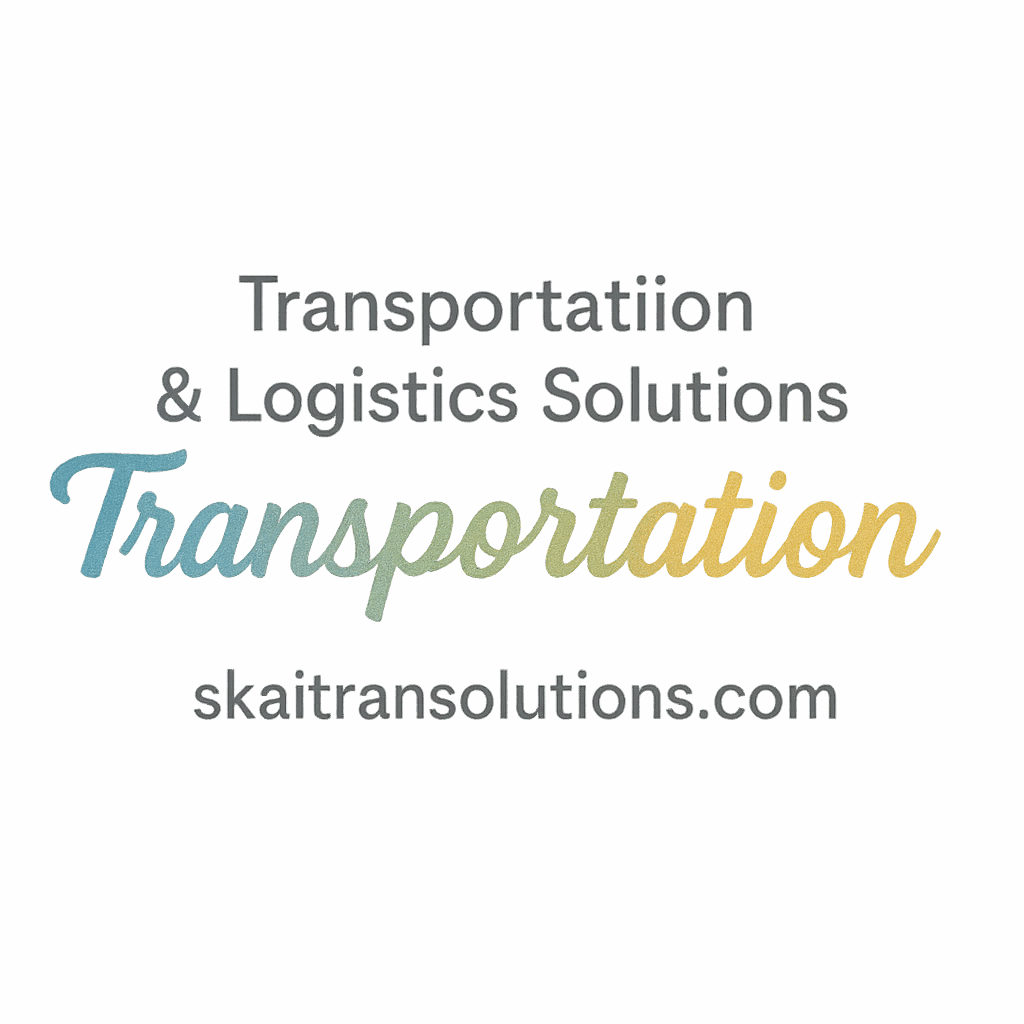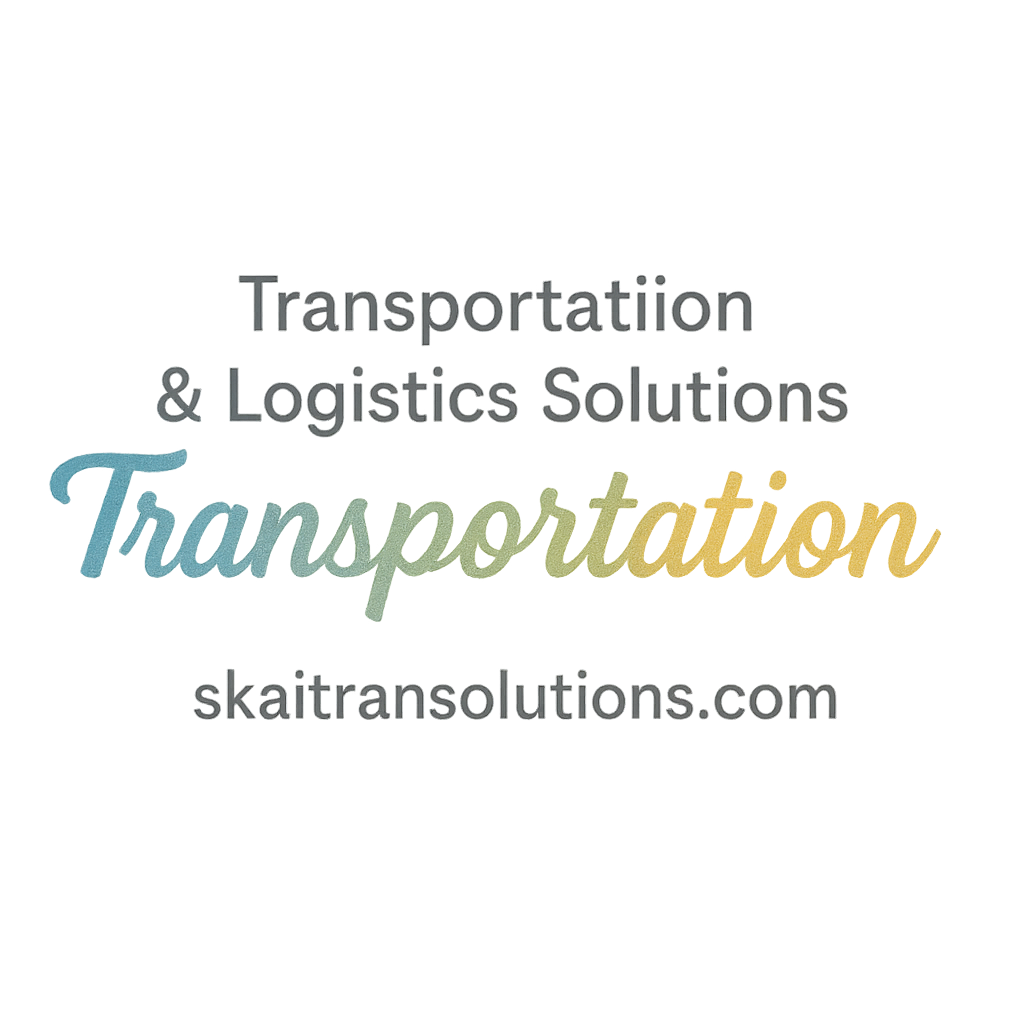The transportation industry is at a tipping point, shaped by rapid technological advancements, evolving customer demands, and a growing focus on sustainability. Staying ahead of these changes is crucial for businesses involved in logistics, supply chain management, and transportation. In this article, we’ll explore 7 key predictions for the next decade that will shape the future of the transportation industry.
From autonomous vehicles to sustainable energy solutions, here’s a look at the innovations and trends that are set to revolutionize the industry in the coming years.
1. The Rise of Autonomous Vehicles
Autonomous vehicles (AVs) are more than just a futuristic concept – they are fast becoming a reality that promises to transform the transportation landscape.
What Are Autonomous Vehicles?
Autonomous vehicles are cars, trucks, or drones that can operate without human intervention, thanks to advanced sensors, cameras, and AI systems. These vehicles are being tested on roads worldwide and will soon become an integral part of logistics and transportation networks.
The Impact on Logistics
In logistics, self-driving trucks could significantly reduce delivery times and costs. These vehicles will be able to operate 24/7, ensuring more efficient supply chains. Similarly, autonomous drones are likely to play a crucial role in last-mile delivery, ensuring faster and more reliable service to customers.
Safety and Regulatory Concerns
Despite their potential, AVs face challenges, particularly around safety and compliance. Regulatory hurdles must be overcome to ensure these vehicles meet road safety standards. It’s critical for companies to stay ahead of these issues as the technology develops.
2. Sustainable Transportation: A Greener Future
As global awareness about climate change grows, the transportation industry will be a key player in the push toward sustainability. Electric vehicles (EVs) and renewable energy sources are set to dominate the next decade.
The Shift to Electric
The transition to electric vehicles will accelerate, with electric trucks and buses becoming increasingly common on the roads. These vehicles offer a cleaner, more sustainable alternative to traditional gas-powered models.
Charging Infrastructure
A critical aspect of this transition will be the development of robust charging infrastructure. The expansion of public and private charging stations will be essential to meet the demand as EV adoption continues to grow.
Environmental Impact and Sustainability
EV adoption offers significant environmental benefits, from reducing carbon emissions to improving air quality in urban areas. The industry will need to prioritize sustainability as part of broader operational best practices to ensure long-term growth.
3. The Integration of AI and Big Data in Transportation
Artificial Intelligence (AI) and Big Data are transforming how transportation networks are managed. These technologies will help optimize routes, enhance safety, and improve customer experiences.
Predictive Analytics in Transport
AI-powered predictive analytics will allow transportation companies to forecast demand and optimize routes, leading to reduced fuel consumption and more efficient operations. Data-driven decisions will enable businesses to enhance their performance and improve overall operational efficiency.
AI-Driven Traffic Management
Cities are increasingly using AI to manage traffic. Smart traffic lights and AI-driven congestion management systems will help reduce delays and improve the flow of traffic, particularly in urban environments.
Enhancing Customer Experience
AI can also be used to personalize transportation services, from ride-sharing to package deliveries. Data-driven insights will help businesses tailor their offerings to meet individual customer needs, boosting satisfaction and loyalty.

4. The Role of Blockchain in Logistics and Transport
Blockchain is not just for cryptocurrencies. This revolutionary technology is set to transform logistics and transportation by enhancing transparency, security, and efficiency.
Blockchain for Supply Chain Transparency
Blockchain technology offers supply chain transparency by providing an immutable record of all transactions. This can reduce fraud, increase traceability, and streamline operations across the entire logistics network. By leveraging blockchain, businesses can improve compliance and security in their transportation and supply chain processes.
Smart Contracts for Efficiency
Smart contracts, which are self-executing contracts stored on the blockchain, will help streamline payments and agreements in the transportation industry. These contracts can reduce paperwork, lower administrative costs, and enhance customer experience by automating tasks such as shipments and insurance claims.
5. Smart Infrastructure and IoT: A Connected Future
The rise of smart cities and IoT-enabled transportation networks will redefine the infrastructure needed to support modern transportation.
Smart Roadways and Connected Vehicles
By 2030, we could see connected vehicles communicating directly with smart roadways, providing real-time data about road conditions, accidents, and traffic. This will help optimize route planning and reduce delays.
Real-Time Traffic Monitoring
With IoT-enabled devices, cities can track traffic in real-time, making it easier to manage congestion and improve the flow of goods and people. This technology will be particularly important for logistics companies that rely on efficient routing to meet tight delivery deadlines.
The Role of 5G in Transportation
The rollout of 5G will enhance the speed and reliability of communication between connected vehicles, traffic management systems, and smart infrastructure. This will facilitate faster data transmission, improve safety, and enable real-time updates to drivers and fleet managers.
6. The Future of Last-Mile Delivery
The growing demand for fast and efficient last-mile delivery solutions is driving innovation in drones, robots, and urban mobility systems.
Drones and Robotics in Delivery
Drones and autonomous robots are expected to revolutionize last-mile delivery. These technologies can bypass traffic congestion and deliver goods directly to customers’ doorsteps, reducing delivery times and costs.
Urbanization and Delivery Needs
As cities continue to expand, the demand for efficient last-mile delivery solutions will grow. Companies will need to adapt by utilizing innovative technologies, such as micro-warehouses and automated distribution hubs, to handle increasing delivery volumes.
Challenges in Last-Mile Delivery
Despite the potential for drones and robots, there are significant challenges to overcome, including regulatory hurdles, safety concerns, and the need for specialized infrastructure.
7. Changes in Global Trade and Its Impact on Transportation
The global trade landscape is constantly changing, and these shifts will impact transportation strategies in the coming decade.
The Rise of Regional Trade Routes
As geopolitical tensions rise, countries are likely to focus more on regional trade agreements, reducing reliance on long global supply chains. This shift will require logistics companies to rethink their transportation strategies and adjust to new trade dynamics.
Impact of Tariffs and Compliance
With evolving tariffs and trade policies, transportation companies will need to stay agile. New compliance requirements and international trade regulations will impact how goods are moved across borders.
Evolving Consumer Demands
E-commerce is expected to continue its rapid growth, driving demand for faster, more efficient deliveries. Consumer experience will become a key factor in the transportation sector, with companies focusing on speed, accuracy, and cost-effectiveness.
Conclusion
The future of transportation is exciting, filled with technological innovations that promise to reshape how we travel and move goods. From autonomous vehicles to sustainable transportation options, the next decade will bring significant changes that will improve efficiency, safety, and customer satisfaction. Companies that stay ahead of these trends and adapt to the new landscape will be best positioned for success.
FAQs
- What are autonomous vehicles, and how will they impact the transportation industry?
- How will electric vehicles change the logistics and transportation sectors?
- What role does AI play in improving transportation operations?
- How can blockchain technology enhance supply chain transparency in transportation?
- What are smart roads, and how will they benefit transportation networks?
- What challenges will last-mile delivery face in the coming years?
- How will changes in global trade affect transportation strategies?


